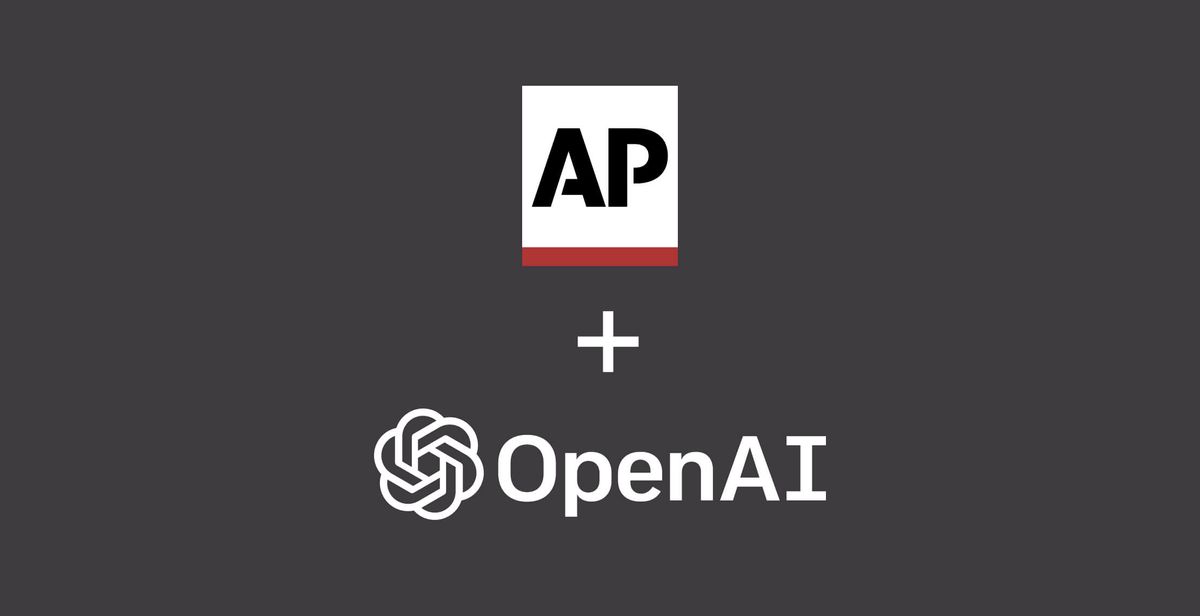
The Associated Press (AP) and OpenAI have announced a new partnership that seeks to examine potential use cases for generative AI in news products and services. As part of the arrangement, OpenAI will license part of AP's text archive and, in return, AP will tap into OpenAI's advanced technology and product expertise.
The AP has been keen to point out that they do not currently use generative AI for news production. This partnership is also not an acknowledgment that it will immediately begin using generative AI in its news production. Rather, it is a conscious exploration of the potential synergies between generative AI and journalism, guided by the unique expertise of both organizations.
Kristin Heitmann, AP's senior vice president and chief revenue officer, highlights the importance of this partnership in navigating the rapidly evolving AI landscape. "Generative AI is a fast-moving space with tremendous implications for the news industry," she says. "We are pleased that OpenAI recognizes that fact-based, nonpartisan news content is essential to this evolving technology, and that they respect the value of our intellectual property."
As AI continues to reshape the media landscape, Heitmann emphasizes the importance of protecting intellectual property and ensuring fair compensation for content creators. "AP firmly supports a framework that will ensure intellectual property is protected and content creators are fairly compensated for their work," she said, further stressing the importance of involving news organizations in shaping the future of AI in journalism.
On the other side, OpenAI's COO, Brad Lightcap, views this collaboration as a golden opportunity to harness AP's extensive experience with AI in journalism. "OpenAI is committed to supporting the vital work of journalism, and we're eager to learn from The Associated Press as they delve into how our AI models can have a positive impact on the news industry," says Lightcap.
He further notes that AP's factual and nonpartisan text archive will be an invaluable resource in refining OpenAI's systems. Access to this archive could offer a significant edge in developing AI models that are more aligned with the rigors of journalistic standards and factual reporting.
The partnership is a natural progression for AP, which has been using AI in various aspects of its journalism for nearly a decade. This approach, initially adopted in 2014 for automating corporate earnings reports, has since expanded to include stories previewing and recapping sporting events. They also use AI technology to aid in transcribing audio and video from live events such as press conferences.
Yet, thorny issues around IP, ethics, and compensation must still be addressed. Who owns AI-generated content? How will compensation for creators be determined? Should restrictions be put on the data an AI can learn from or be trained on?
The news industry stands on the cusp of significant transformation. With misinformation and disinformation rampant, maintaining rigorously factual content is critical. This collaboration could be an important first step in establishing new industry-wide standards that maximize generative AI's benefits while protecting the public interest. The mutual exchange of expertise and resources will hopefully lead to pioneering applications of AI in news reporting, while ensuring that journalistic integrity and IP protection remain at the forefront.

